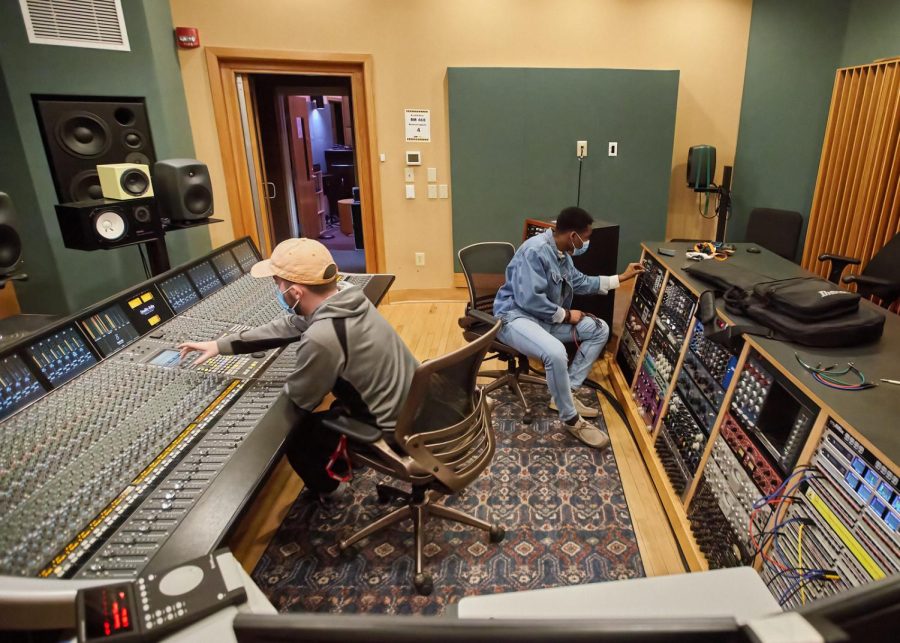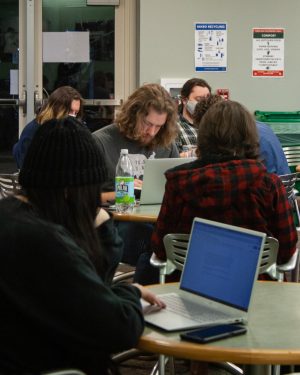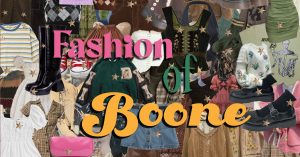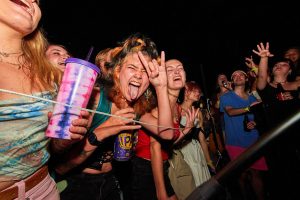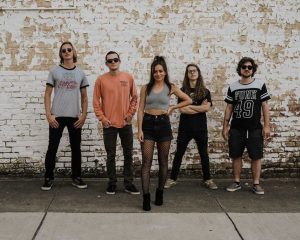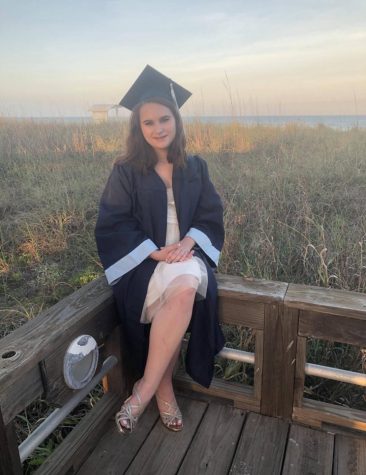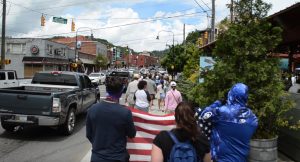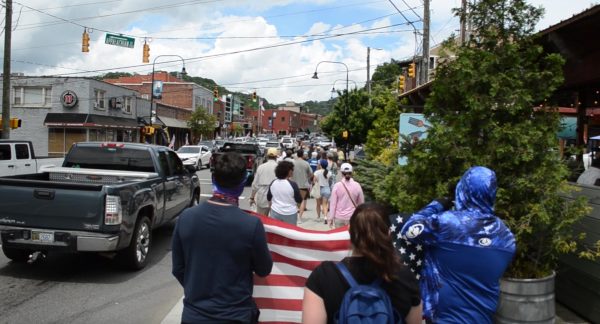Student musicians utilize on-campus recording studio
Andrew Poplaski and Jacoby Brown create sounds for a workshop in the Robert F. Giley studio Jan. 12, 2022.
January 19, 2022
Instead of sitting around in lecture halls, many of App State’s music production students can be found in the Robert F. Gilley Recording Studio, producing and editing musical tracks with state-of-the-art recording software, playing a variety of musical instruments or singing into professional microphones.
A part of the Hayes School of Music, the RFG Recording Studio is a multi-million dollar recording studio serving students and local artists who take advantage of the studio’s equipment.
“All of the gear that we have is spectacular,” said Jake Kremer, an App State student and studio manager for RFG Recording Studio. “We probably have the most gear out of any public university in North Carolina.”
Fellow student musician and RFG Recording Studio veteran, Grayson Oxendine-Parr, also highly praised the recording facility.
“The facilities are like a mirror copy of what you see in the professional realm. They’re very applicable,” Oxendine-Parr said. “The studio is like a hidden gem.”
Typically, the recording process in the studio starts with establishing basic musical tracks, then the creation of a demo. Once that demo is created, the artists build off of it to work toward creating a song they are satisfied with.
It takes about a month to record a piece and send out the final release. However, the process takes significantly longer for commercial artists, Oxendine-Parr said.
“Every engineer has their own flow,” Oxendine-Parr said.
Dylan Innes, both a student and musician at App State, took advantage of the on-campus studio to record his album, “Taste The Tide” and his latest single, “Little Blue House,” which was released Dec. 10.
“I love working in the studio. Only con is booking time since there’s so many recording students the space is very limited,” Innes wrote in an email.
Aside from individual artists frequently using the studio and its equipment, North Carolina-based bands, such as Juniper Avenue and Sidepony, also visit RFG to record some of their musical material.
“I like working with bands. Everyone has a stake in it, and it’s a different kind of energy,” Oxendine-Parr said. “There’s a camaraderie to it.”
Both Kremer and Oxendine-Parr said equipment in the studio isn’t the easiest to work with, but with some practice, one can get used to it. There are many different kinds of technology available to students and staff of the studio, including a soundboard priced at over $200,000.
The technology in RFG is designed to be more difficult but “in a good way,” as it helps students learn and gain more experience with the various types of technology, Oxendine-Parr said.
“It’s by far the best recording studio at any public NC university,” Innes wrote.
Kremer, Oxendine-Parr and Innes regard the studio very positively and said that others, if granted the opportunity, should also take advantage of it and get involved.
“People should work with the RFG,” Kremer said. “It’s good to get involved internally with App State.”

